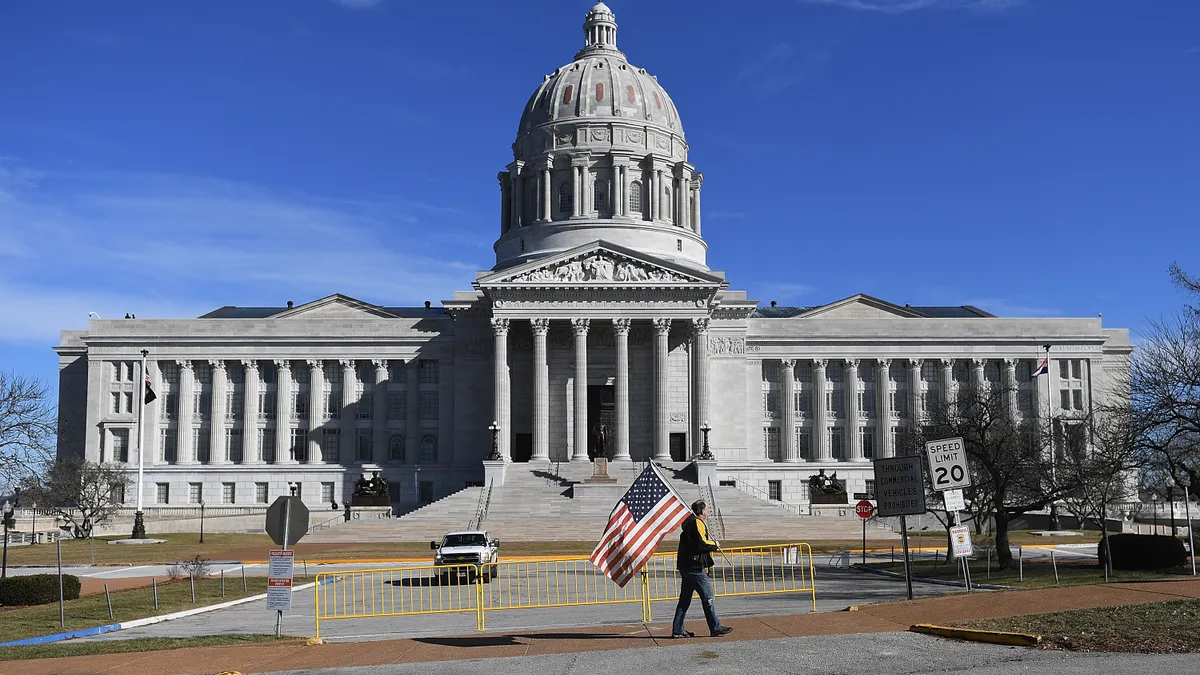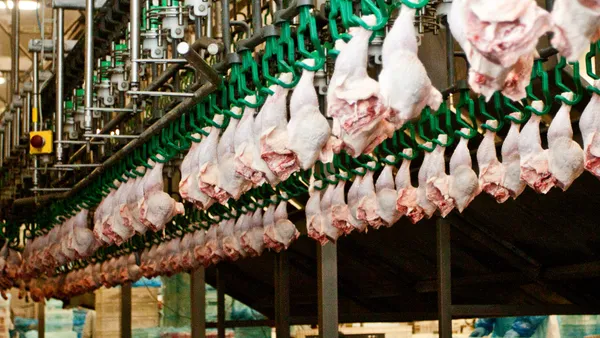Dive Brief:
-
Missouri Gov. Mike Parson on Tuesday issued an executive order to ban companies and individuals from China and other adversarial countries from owning farmland near the state’s military operations.
-
Any citizen, resident or business from a “foreign adversary” — such as China, Cuba, Iran, North Korea, Russia or Venezuela — is banned from owning agricultural land within 10 miles of all military facilities in the state, according to Missouri’s Executive Order 24-01.
-
In a news conference, Parson said the order “safeguards our military and intelligence assets, prevents security threats to our state, and gives Missourians greater peace of mind." The order does not affect existing landowners.
Dive Insight:
Missouri issued the order amid heightened concerns about foreign ownership of farmland, especially from China.
While China represents less than 1% of the total U.S. agricultural land owned by foreign investors, holdings have increased in recent years, according to U.S. Department of Agriculture data.
This is due largely to land purchases made by Chinese billionaire Sun Guangxin in Texas. Reporting disclosures from Smithfield Foods also boosted numbers after the company was acquired by China-based WH Group in 2013.
The top states with farmland owned by China include Texas (159,640 acres), North Carolina (44,776 acres) and Missouri (43,071 acres), according to the latest 2022 data from the USDA. However, these estimates are likely undervalued because if multiple investors are listed on USDA’s foreign disclosure forms and no primary country is identified, the holdings are recorded as “no predominant country.”
Several states passed stricter laws banning China and other countries from purchasing U.S. farmland last year, despite the countries owning little to no acreage. Arkansas recently enforced its ban against international seed developer Syngenta because of its ties to China, ordering the company to divest of its land holdings for national security reasons.
Critics, however, say these bans could exacerbate an already strained relationship between the U.S. and China and damage trade relations with the largest agriculture importer.
“While we have had no issues yet, we want to be proactive against any potential threats,” Parson said in a news conference.
Missouri already has farmland ownership restrictions in place when it comes to foreign entities, capping purchases at 1% of the total agricultural land across the state.
The latest executive order creates more stringent requirements and requires approval from the Missouri Department of Agriculture prior to any foreign acquisition of farmland. There are approximately 65 military locations across Missouri. Including the 10-mile radius buffer, the ban covers nearly a fourth of the entire state.
The order also sets certain disclosure requirements and allocates state funds to ensure the agency has proper resources and staff to enforce protections in fiscal years 2024 and 2025.
During the news conference, Parson made clear that the order does not affect foreign allies, including Israel, Sweden, Germany, the U.K. and Japan, among others who bring billions of dollars and thousands of jobs to Missouri.
“We believe this order today sufficiently protects Missouri’s security interests from potential bad actors, while not punishing our allies for being good economic partners or upstanding individuals fleeing oppression in search of a better life,” he said.











